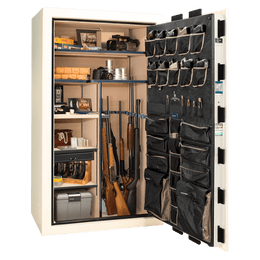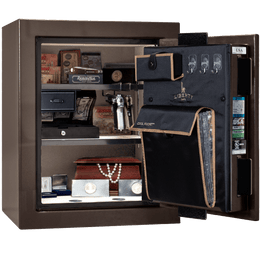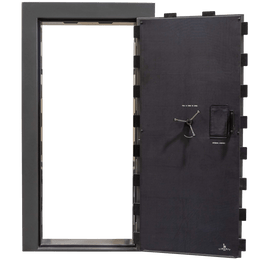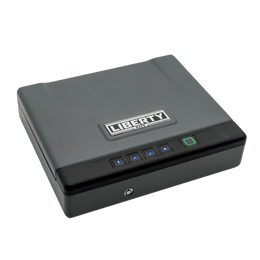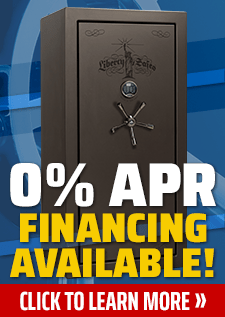Rethinking Traditional Security in a Changing Financial Landscape
For generations, the bank vault held a special place in our minds as the ultimate bastion of security. A safe deposit box was the go-to solution for protecting cherished heirlooms, critical documents, and other irreplaceable valuables. However, a quiet but significant shift is happening across the United States. Many banks are reducing, and in some cases completely eliminating, their safe deposit box services, leaving customers searching for a reliable alternative. This change isn't a sign of decreased security needs; it's a signal that the time has come for a more modern, accessible, and comprehensive solution: a high-quality home safe.
Why Are Bank Safe Deposit Boxes Fading Away?
The decline of the bank safe deposit box is driven by several practical, economic factors. For financial institutions, the massive, fortified vaults required to house these boxes are expensive to build, maintain, and secure. In an era of digital banking and streamlined branch designs, the physical space and operational overhead they demand are becoming less justifiable. Here are a few key reasons behind this nationwide trend:
- →Declining Profitability: Safe deposit boxes generate very little revenue for banks compared to loans, investments, and other financial products. The cost of administration and security often outweighs the income from rental fees.
- →Shifting Customer Habits: With the rise of digital documents and less reliance on physical records, demand for safe deposit boxes has waned among younger generations.
- →Branch Consolidation: As banks close physical branches in favor of a stronger online presence, the services tied to those locations, including safe deposit boxes, are often discontinued.
- →Liability and Risk: Despite the secure appearance, banks face liability risks from events like floods, fires, or internal theft. Managing these risks for what has become a non-core service is an unattractive proposition.
The Hidden Truths of Bank Storage
Beyond their disappearing act, there are fundamental limitations to safe deposit boxes that many people overlook. One of the most critical is a common misconception about insurance.
Your Valuables Are Not FDIC Insured. The Federal Deposit Insurance Corporation (FDIC) insures cash deposits in bank accounts (up to $250,000 per depositor), but this protection does not extend to the contents of a safe deposit box. If a fire, flood, or other catastrophe damages the vault, you are not covered by the bank's insurance or the FDIC. You would need a separate rider on your homeowner's insurance policy, which can be costly and complex.
Another significant drawback is accessibility. Your prized possessions are only available during banking hours. This can be a major problem in an emergency, during a holiday weekend, or if you simply need something in the evening. Ownership transfers can also be complicated, often requiring legal paperwork and lengthy delays for heirs to gain access.
The Superior Alternative: Owning Your Security with a Home Safe
A modern home safe from a trusted American manufacturer like Liberty Safe addresses every shortcoming of a safe deposit box while offering a host of additional benefits. It’s a one-time investment in permanent peace of mind and total control over your valuables.
- Unrestricted 24/7 Access: Your passports, birth certificates, jewelry, and emergency cash are available to you whenever you need them, day or night.
- Proven Fire Protection: Unlike many bank vaults that are primarily designed for theft prevention, quality home safes are purpose-built with certified fire protection. Models like the Classic Plus Series can withstand intense temperatures for extended periods, protecting sensitive documents and digital media from being turned to ash.
- Advanced Theft Security: Built with thick gauge steel, military-style locking bars, and sophisticated electronic or mechanical locks, a robust home safe offers formidable defense against break-ins.
- Complete Privacy: No one but you needs to know what you are storing. Your valuables remain in the privacy of your home, away from the eyes of bank employees or the risks associated with third-party storage.
Home Safe vs. Safe Deposit Box: A Clear Comparison
| Feature | Home Safe | Bank Safe Deposit Box |
|---|---|---|
| Accessibility | 24/7/365, anytime | Limited to bank hours |
| Insurance | Covered under your homeowner's policy | Not FDIC insured; contents are uninsured |
| Fire Protection | Certified ratings, often from 30 to 120+ minutes | Generally not certified or guaranteed |
| Cost Structure | One-time purchase | Annual recurring rental fee |
| Privacy | 100% private, located in your home | Requires access via bank personnel |
| Permitted Items | Store firearms, cash, ammo and other valuables | Banks often prohibit storage of cash, firearms, etc. |
Did You Know?
Financial experts often advise against storing certain items in a safe deposit box, including your original will, powers of attorney, or passports for emergency travel. Why? Because if you or your family can't access the box quickly, these critical items are effectively out of reach when you need them most. A home safe eliminates this access barrier entirely.
A Nationwide Shift Toward Self-Reliance
As this trend continues across the United States, more and more people are realizing that third-party security comes with third-party limitations. Relying on a bank to protect your most personal and valuable items is no longer the most secure or logical choice. By investing in a high-quality, American-made safe, you are adopting a mindset of self-reliance. You are taking direct control of your family's security, ensuring that what you value most is protected on your terms, right where you need it—at home.
Secure Your Legacy Today
The disappearance of safe deposit boxes is a clear sign that it's time to bring your security home. Don't wait for your bank to send you a notice. Take proactive control of your valuables and give yourself the gift of 24/7 access and certified protection.
Contact Our ExpertsFrequently Asked Questions
Q: Are the contents of a safe deposit box insured by the bank?
A: No. This is a critical point that is often misunderstood. Neither the bank nor the FDIC insures the contents of your safe deposit box. In case of loss from theft, fire, or flood, you would have to seek coverage from your own insurance provider, if you have a specific policy rider for those items.
Q: What's a better place to store important documents like wills and passports?
A: For documents requiring immediate access, a home safe is unequivocally superior. A will or power of attorney locked in a bank may be inaccessible when urgently needed. A fire-rated home safe not only protects these documents from damage but also ensures they are available to you or your family at a moment's notice.
Q: How secure is a home safe compared to a bank vault?
A: While a bank vault is formidable, modern home safes from reputable brands are engineered to withstand sophisticated break-in attempts and intense fires. They provide an exceptional level of on-site security against the most common threats a homeowner faces, offering a more practical and accessible layer of defense.
Q: How do I know which home safe is right for my needs?
A: The right safe depends on what you plan to store. Consider factors like size, fire rating, and security level. For a personalized recommendation based on your specific needs, taking a quick quiz can be incredibly helpful. You can find the perfect safe by answering a few simple questions about your storage goals.


